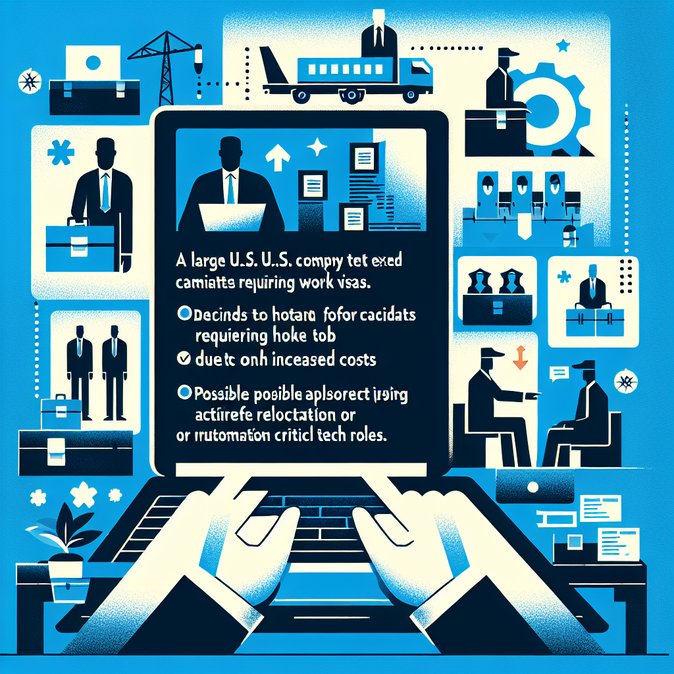
America’s largest private employer slammed the brakes on hiring any new workers who would need an H-1B visa after the Trump administration slapped a $100,000 surcharge on most initial H-1B petitions. A corporate spokesperson confirmed to CNN that offer letters requiring visa sponsorship were “paused until further notice,” although the retailer said it remains committed to the more than 2,000 H-1B professionals already on staff.
The policy change, first reported by Bloomberg and confirmed on 22 October, illustrates how quickly large employers are recalibrating talent strategies as immigration costs soar. The H-1B, valid for up to six years, is a linchpin for filling hard-to-staff tech, data-science and pharmacy roles in Walmart’s fast-growing e-commerce and supply-chain units. At $100,000—on top of roughly $6,500 in normal filing fees—each new petition now costs more than the typical first-year salary of many entry-level programmers.
Labor economists warn the surcharge will shift recruiting overseas and accelerate automation investment. Walmart’s decision is likely to echo across corporate America, because the retailer’s head-count needs and razor-thin margins make it a bellwether for cost-sensitive HR policy. Indian nationals—who historically receive about 70 percent of H-1B approvals—could be hardest hit, potentially losing thousands of openings in middle-America tech hubs that have been immune to Silicon Valley slowdowns.
Immigration attorneys expect a spike in efforts to convert existing F-1 students to H-1B status before graduation, as well as a surge in green-card sponsorship requests for critical staff already in the United States. Companies that cannot recruit abroad may pay significant retention bonuses or pursue near-shore centers in Canada and Mexico. Walmart has not said whether it will finance the $100,000 fee for exceptional candidates, but insiders say the bar will be “extraordinarily high.”
The policy change, first reported by Bloomberg and confirmed on 22 October, illustrates how quickly large employers are recalibrating talent strategies as immigration costs soar. The H-1B, valid for up to six years, is a linchpin for filling hard-to-staff tech, data-science and pharmacy roles in Walmart’s fast-growing e-commerce and supply-chain units. At $100,000—on top of roughly $6,500 in normal filing fees—each new petition now costs more than the typical first-year salary of many entry-level programmers.
Labor economists warn the surcharge will shift recruiting overseas and accelerate automation investment. Walmart’s decision is likely to echo across corporate America, because the retailer’s head-count needs and razor-thin margins make it a bellwether for cost-sensitive HR policy. Indian nationals—who historically receive about 70 percent of H-1B approvals—could be hardest hit, potentially losing thousands of openings in middle-America tech hubs that have been immune to Silicon Valley slowdowns.
Immigration attorneys expect a spike in efforts to convert existing F-1 students to H-1B status before graduation, as well as a surge in green-card sponsorship requests for critical staff already in the United States. Companies that cannot recruit abroad may pay significant retention bonuses or pursue near-shore centers in Canada and Mexico. Walmart has not said whether it will finance the $100,000 fee for exceptional candidates, but insiders say the bar will be “extraordinarily high.”




